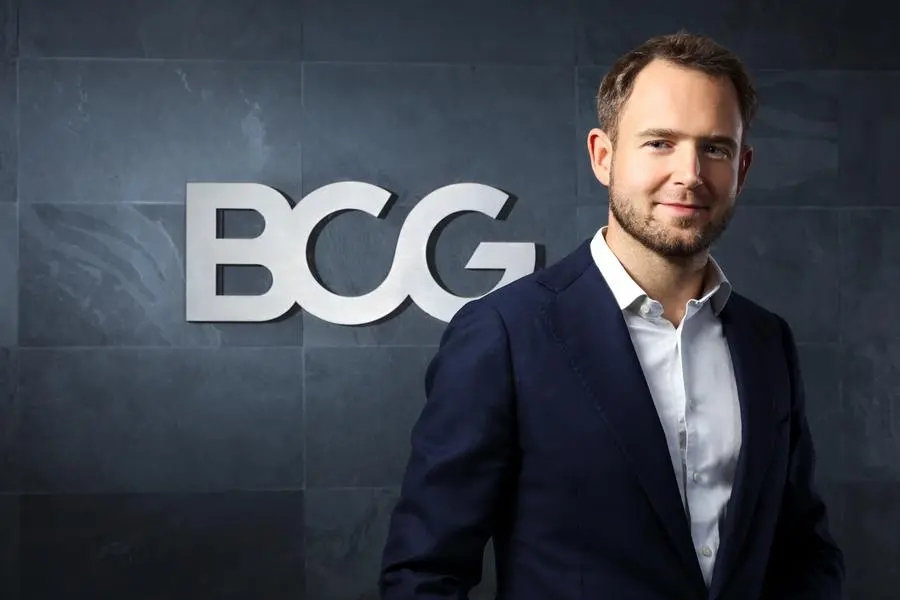PHOTO
- In 2022, 25% of the UAE's financial wealth came from Ultra High Net Worth individuals worth more than USD 100 million, and individuals with wealth between USD 1 million - USD 20 million held another 32%
- A new BCG report projects that the UAE's financial wealth will increase from USD 1 trillion in 2022 to USD 1.3 trillion in 2027
- Equities & investment funds remain the largest asset class in the UAE, making up 58% of total onshore personal wealth in 2022, with bonds expected to have the fastest growth at an 8.4% CAGR between 2022 - 2027
Dubai — The United Arab Emirates (UAE) financial wealth is anticipated to experience a robust Compound Annual Growth Rate (CAGR) of 5.5% in new wealth, rising from USD 1 trillion to USD 1.3 trillion from 2022 to 2027, according to a new report by Boston Consulting Group (BCG).
The BCG report, titled ‘Global Wealth Report 2023: Resetting the Course,’ reveals that equities and investment funds in the UAE continue to make up the largest asset class at 58% of total personal wealth in 2022, while bonds are expected to grow the fastest with a CAGR of 8.4% between 2022 - 2027. Life insurance & pensions are set to become the third largest asset class by 2027.
"Representing 13.2% of the Middle East and Africa's financial wealth in 2022 and growing at a rate of 6.5% per annum from 2017 to reach USD 1 trillion in 2022, the UAE's trajectory signals the country’s strong position as one of the preferred global destinations for the wealthy. This impressive growth reflects the strong value proposition the country has developed for high-net-worth individuals (HNWIs)," said Mohammad Khan, Managing Director and Partner, at BCG.
UHNW Individuals Remain Major Contributors to UAE's Wealth Growth
In 2022, a sizeable portion of the UAE's financial wealth, approximately 25%, originated from Ultra High Net Worth (UHNW) individuals worth more than USD 100 million. The influence of these individuals is anticipated to continue to remain consistent until 2027. Furthermore, individuals with wealth between USD 1 million – USD 20 million held 32% of the UAE's wealth in 2022, with this expected to grow to 34% in 2027.
"The UAE's success in attracting and retaining high net worth individuals contributes to its growing economic prowess. Not only are they accelerators of innovation and investment in the region, but they also warrant its sustained growth," said Lukasz Rey Managing Director and Partner, Head of Middle East Financial Institutions Practice, BCG.
Real Assets and Liabilities on the Rise
The report also presents notable findings on the UAE's real assets and liabilities. Real assets in the UAE grew by 7.5% per year from 2017 to 2022, reaching USD 1.9 trillion, and are projected to increase by 6.9% per annum to USD 2.6 trillion by 2027.
Simultaneously, the UAE's liabilities sector expanded by 3.1% per annum during the same period and is expected to grow by 6.3% per annum to USD 0.2 trillion by 2027. This balanced growth invokes a financial profile of a nation that is confident in taking calculated risks, potentially enhancing the all-around growth narrative.
Achieving Sustainable Profitability in Wealth Management
The report provides a detailed analysis of the performance of wealth managers across different areas of their businesses, as well as market-sizing and the quest for long-term profitability. It outlines eight initiatives on both the revenue and cost sides that can aid firms in positioning themselves optimally for the future. The aim is to provide actionable information and insights for wealth managers looking for a competitive advantage amidst a challenging marketplace and tough overall economic conditions.
On the revenue side, the strategies include scalable client acquisition, distinctive private-market offerings, revising product shelves towards fixed-income products, and incorporating generative artificial intelligence (GenAI) in financial advice. For cost reduction, the focus is on end-to-end (E2E) process review, making informed shoring decisions, utilizing third-party tech and operational solutions, and simplifying products and services via advice-like discretionary portfolio management (DPM) to streamline operations and cater to various client needs effectively.
"To ensure long-term profitability in wealth management, strategic adoption of initiatives like scalable client acquisition, distinctive private-market offerings, and the integration of GenAI in financial advice can revolutionize revenue generation. Simultaneously, focusing on reviews, decisions, and tech-based solutions is key to strategic cost management. By redesigning wealth management with these insights, we can unlock a future of growth, efficiency, and scalability," concluded Khan.
About Boston Consulting Group
Boston Consulting Group partners with leaders in business and society to tackle their most important challenges and capture their greatest opportunities. BCG was the pioneer in business strategy when it was founded in 1963. Today, we work closely with clients to embrace a transformational approach aimed at benefiting all stakeholders—empowering organizations to grow, build sustainable competitive advantage, and drive positive societal impact.
Our diverse, global teams bring deep industry and functional expertise and a range of perspectives that question the status quo and spark change. BCG delivers solutions through leading-edge management consulting, technology and design, and corporate and digital ventures. We work in a uniquely collaborative model across the firm and throughout all levels of the client organization, fueled by the goal of helping our clients thrive and enabling them to make the world a better place.




















